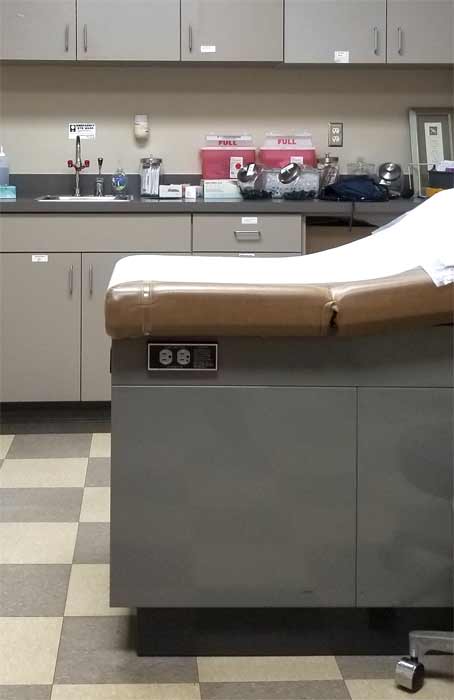A short history of medicine
Western medicine verses traditional herbal medicine thru the centuries

Hippocrates believed in scientific reason and natural healing. A physician during Greece’s Golden Age, Hippocrates had one foot in science and the other in tradition, using both for the well-being of mankind.
He believed that the task of the physician was to help the healing process along, rather than to take it over. His beliefs continued until the 19th century (for 2,300) years. Hippocrates, the father of medicine, was a smart man and way ahead of his times.
I believe that doctors, healthcare professionals, herbalists, alternative medicine practitioners and their patients should work together. They should all be communicating and coming up with the best treatment plan possible for each individual.

Is diagnosis the key to healing?
During the second century, Galen, another Greek physician, was the first to promote diagnosis as the key to healing. Soon every health problem was forced into a classification (as it is today). His ways were rigid and only doctors were allowed access to healing knowledge.
Conflicts between alternative and western medicine
Throughout history, the art of healing as been influenced by religion, politics, philosophies, and vested interests (money). The conflicts between alternative medicine and “western” medicine are nothing new.
From traveling medicine shows to modern day hospitals, “western medicine” has always been based on physical science. Other methods such as acupuncture, herbal medicine, and aromatherapy have concentrated on healing the mind, body, and spirit as one entity.
Herbal pharmacies were busy during the Dark Ages.
During the Dark Ages, natural healing came back into favor for a time.
The Arabs brought alchemy and pharmacy into western medicine. They introduced many new ointments, elixirs, pills, tinctures, suppositories, purgatives, cathartics, and inhalations to the masses.
From the 12th century on, apothecaries (herbal pharmacies) were common in every neighborhood. The people depended on herbal medicine for healing and preventive remedies.
Isolated plant properties
In the 16th century, Paracelsus taught that alchemy and chemistry were a way to unlock the secrets of nature. He began the distillation of isolates.
Both the alchemists of his day, and the chemists of our day, adhere to the belief that these chemicals are more potent and effective than the whole plant (while still being safe to use). This may be true, but during the process of isolating one chemical, many healing properties are lost. The synergy is destroyed when parts are removed from the whole.
Isolates can be patented.
Even though big pharmaceutical companies have been proven wrong countless times, isolates remain popular because their manufacture can be patented and rigorously controlled. This means huge profit margins, worth putting millions into advertising campaigns.
Isolates are useful, and in many situations they save lives (but so do natural herbal remedies which are inexpensive and don't cause overdoses).
Culpeper and the practical use of herbs
In the 17th century, Nicholas Culpeper, tired of expensive imported drugs, created his own herbal handbook called The English Physician. Culpeper wrote about the practical use of herbs.
People once again started looking to home remedies for help when disease struck.
The decline of herbal medicine
Early in America’s history, the colonists relied heavily on imported medicines (although American Indians also provided natural remedies to the newcomers).
By the 1800’s, both American and European medical schools favored prescription medicine, and it was the only thing they taught. Herbal medicine was considered old fashioned (although many rural folks without access to doctors still relied heavily on herbs).
Medical industry promotes synthetic chemicals as best choice.
The American Medical Association was formed in 1847, partly in response to renewed interest in herbal medicine and the popularity of alternative medicine schools. The newly formed organization soon became underwritten by pharmaceutical companies who had a great deal to gain.
Before long, the whole medical and pharmaceutical industry turned its back on the plant world and looked to synthetic chemicals as the best choice.
By the 20th century, overwhelmed by the growth of the AMA, herbal medicine went into severe decline.
People were encouraged to go to doctors, instead of using old-time remedies. The whole medical system became both a world of scientific advancement and a money game.
Modern medicine improved life around the world, but I believe doctors could have done a lot more by including herbal remedies in their treatment plans.

Great technical advances
Chemists learned to synthesize active plant components and modern laboratories began to produce standardized and readily available drugs.
After the discovery of antibiotics, surgical techniques were improved and modern medicine accomplished great technical advances.
By the 1950’s, people were accustomed to taking a pill for everything.
Instead of looking at diet, lifestyle, and environment, most doctors and their patients addressed individual symptoms instead of causes. Scientists began looking for a pill to cure everything from baldness to cancer.
Combining modern medicine with alternative methods
People and some healthcare professionals are finally starting to combine modern medicine with alternative and holistic methods of healing. There is clearly a rebirth of herbal medicine and natural healing in today’s society.
Some doctors and many nurses are getting on board. Praise the Lord!
Rebirth of herbal medicine and natural remedies
Herbal medicine has always recognized that individual body parts are components of the whole being. Herbalists have not only looked at symptoms, but also at social, emotional, and spiritual health (along with diet, exercise, and stress levels) before making decisions regarding treatments.
Herbalists have also recognized the need of a loving touch and compassionate ear. Sometimes a warm embrace can do more to help a patient than any medicine or procedure.

Combine modern medicine with holistic approaches for best results.
Modern medicine and the holistic approach are slowly starting to come together. People still depend on doctors, but they are also relying more on diet, exercise, and herbal remedies as a way to prevent and reduce severity of sickness and disease.
It is good to take your health into your own hands! No one knows your body better than you do.
*Always consult with your healthcare provider before using any herbal remedy especially if pregnant, nursing, or taking other medicines.
Sources:
https://www.ncbi.nlm.nih.gov/pmc/articles/PMC3777424/
Blessings to you and yours!
Thanks so much for reading my blog. Jan.

*Note - the information on this website has not been evaluated by the Food and Drug Administration.
© 2005-2024 website design and content by Janice Boling